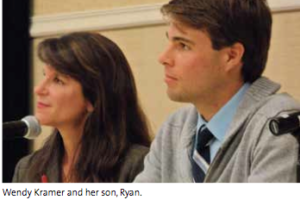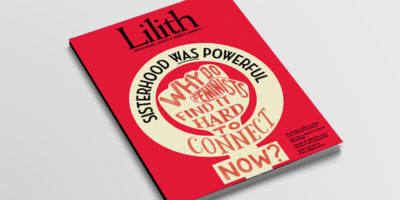Why We Need a Sperm Donor “Sibling Registry”
The availability of sperm from anonymous donors, typically purchased from sperm banks, has been a boon to single women, lesbian partners and heterosexual couples wrestling with fertility challenges. One risk, though, is that certain genetic characteristics or mutations may be spread more widely in a population when one man can father dozens or even hundreds of children if he has sold his sperm frequently. Another risk is that with anonymity promised to both donor and purchaser, the children born of this conception have no way to trace where half their DNA comes from. The Donor Sibling Registry wants to end this anonymity.
Wendy Kramer and her son Ryan founded the DSR in 2000 to assist people who were conceived as a result of sperm, egg or embryo donation to make mutually desired contact with others who share their genetic ties. Initially, they wanted to find Ryan’s siblings and the man Ryan calls his father. Nearly 3000 matches were made before Ryan, 16 at the time, was connected with one of his siblings, a sister.
 A new book, Finding Our Families: The first-of-its-kind for donor-conceived people and their families by Wendy Kramer and Naomi Cahn, J.D., advocates opening up the records for all. In a recent review, Mirah Riben pointed out that “infertility practitioners followed the model of adoption in which those becoming parents used to be told they never had to tell their children they were adopted.” In this book, Riben says:
A new book, Finding Our Families: The first-of-its-kind for donor-conceived people and their families by Wendy Kramer and Naomi Cahn, J.D., advocates opening up the records for all. In a recent review, Mirah Riben pointed out that “infertility practitioners followed the model of adoption in which those becoming parents used to be told they never had to tell their children they were adopted.” In this book, Riben says:
“Kramer and Cahn share the belief that donor-conceived children’s desire to know their genetic family ‘must’ be honored….” and “‘that knowing about your origins is not only an innate desire but a right.’ Their radical position is not shared by all who have benefited from anonymous reproduction or hope to. Many are concerned that outlawing anonymous genetic contributions will reduce the number of donors as they believe happened in the UK. DSR however has gathered data that proves no such decline.”
From Mirah Riben, “Finding Family Truths and Roots,” Huffington Post, March 13, 2015.



